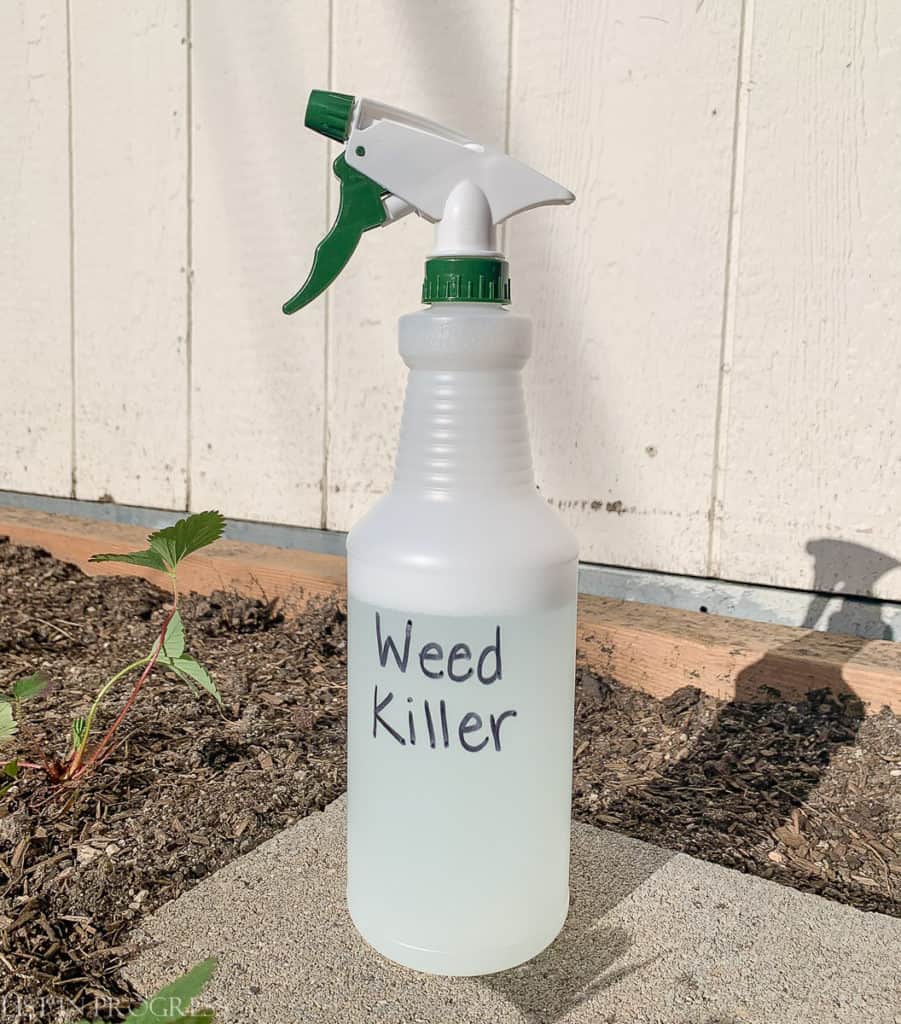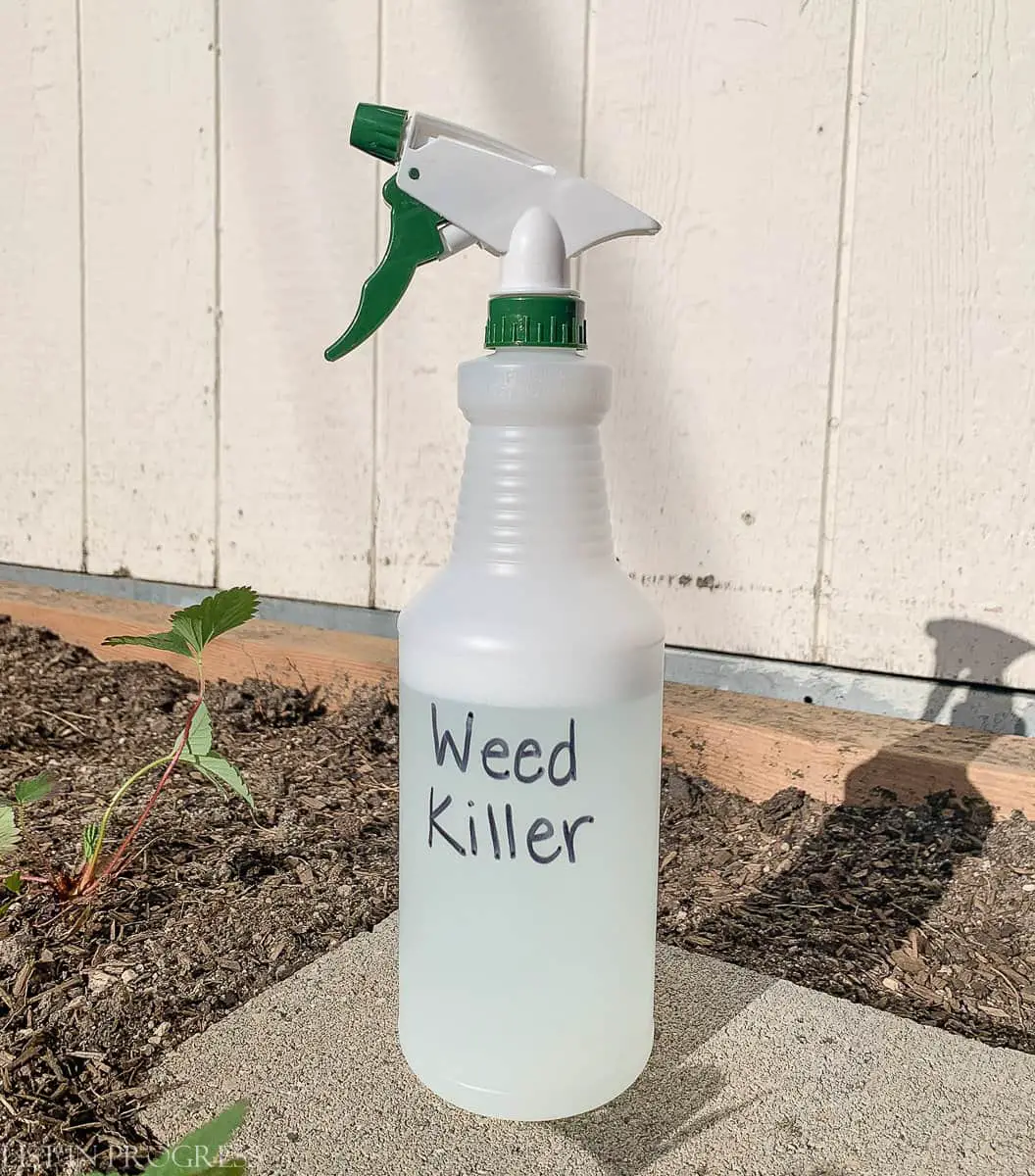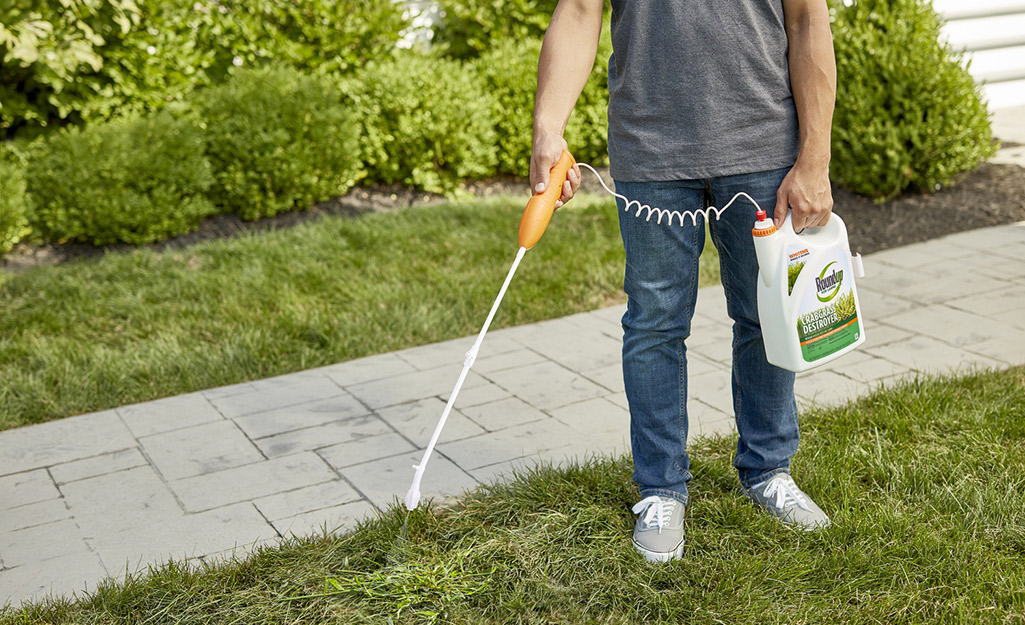Why Traditional Weed Killers are a Thing of the Past
The use of traditional chemical-based weed killers has been a common practice for many years, but their risks and drawbacks can no longer be ignored. These products contain toxic chemicals that can contaminate soil, water, and air, posing a threat to human health, pets, and the environment. Exposure to these chemicals has been linked to various health problems, including cancer, neurological damage, and reproductive issues. Moreover, the overuse of chemical weed killers has led to the development of “superweeds” that are resistant to these products, making them less effective over time.
In addition to the health and environmental risks, traditional weed killers can also harm beneficial insects, such as bees and butterflies, which are essential for pollination. The widespread use of these products has contributed to the decline of these important species, further threatening the ecosystem. As concerns about the environment and human health continue to grow, it’s clear that traditional weed killers are no longer a viable solution for lawn care.
Fortunately, there are safer alternatives available that can effectively control weeds without harming the environment or human health. Non-toxic weed killers for lawns are becoming increasingly popular, and for good reason. These products use natural ingredients that are biodegradable and non-toxic, making them a much safer choice for families, pets, and the environment. By switching to a non-toxic weed killer for lawns, homeowners can enjoy a lush, weed-free lawn without compromising their values or putting their health at risk.
How to Choose the Best Natural Weed Killer for Your Lawn
With the numerous non-toxic weed killer options available, selecting the most effective one for your lawn can be overwhelming. To make an informed decision, consider the type of lawn you have, the type of weeds you’re dealing with, and the ingredients used in the product. For instance, if you have a sensitive lawn, look for a product that is specifically designed for delicate grasses. If you’re dealing with tough weeds like dandelions or clover, choose a product that contains ingredients like vinegar or essential oils, which are known for their effectiveness against these types of weeds.
Another important factor to consider is the product’s active ingredients. Look for products that use natural ingredients like plant extracts, soap, or salt, which are biodegradable and non-toxic. Avoid products that contain harsh chemicals or artificial fragrances, which can harm the environment and human health. Additionally, consider the product’s concentration and application instructions to ensure you’re using it effectively and safely.
When shopping for a non-toxic weed killer for lawns, also check the product’s label for certifications like OMRI (Organic Materials Review Institute) or EPA Safer Choice, which indicate that the product meets certain standards for safety and sustainability. By taking the time to research and choose the right non-toxic weed killer for your lawn, you can enjoy a lush, weed-free lawn without compromising your values or putting your health at risk.
Top Picks: Non-Toxic Weed Killers for a Healthy Lawn
When it comes to choosing a non-toxic weed killer for lawns, there are several options available on the market. Here are some top picks that have been proven to be effective and safe for the environment:
Ecosmart Organic Weed Killer is a popular choice among homeowners who want to maintain a healthy lawn without using harsh chemicals. This product is made from natural ingredients like lemongrass oil and clove oil, which are known for their ability to kill weeds without harming the environment. Ecosmart Organic Weed Killer is also OMRI-certified, ensuring that it meets the highest standards for safety and sustainability.
Another top pick is Green Gobbler Vinegar Weed Killer, which uses a concentrated formula of vinegar to kill weeds. This product is highly effective against tough weeds like dandelions and clover, and is also safe for use around pets and children. Green Gobbler Vinegar Weed Killer is also biodegradable and non-toxic, making it a great choice for homeowners who want to reduce their environmental impact.
Other notable mentions include Weed Warrior Natural Weed Killer, which uses a blend of natural ingredients like soap and salt to kill weeds, and Weed Killer by Espoma Organic, which uses a combination of natural ingredients like bone meal and alfalfa meal to promote healthy lawn growth while killing weeds.
When choosing a non-toxic weed killer for lawns, be sure to read the label carefully and look for certifications like OMRI or EPA Safer Choice. These certifications ensure that the product meets certain standards for safety and sustainability, giving you peace of mind when using it on your lawn.
The Power of Vinegar: A Natural Weed Killer for Your Lawn
Vinegar is a natural and effective non-toxic weed killer for lawns that has been gaining popularity in recent years. The acidity level of vinegar, typically around 5%, makes it an ideal solution for killing weeds without harming the environment. Vinegar is also biodegradable and non-toxic, making it a great alternative to traditional chemical-based weed killers.
One of the benefits of using vinegar as a weed killer is its effectiveness against a wide range of weeds, including dandelions, clover, and plantain. Vinegar can be applied directly to the weeds using a spray bottle or by mixing it with water and applying it to the entire lawn. The acidity level of vinegar will break down the cell walls of the weeds, causing them to die within a few days.
Another benefit of using vinegar as a weed killer is its cost-effectiveness. Vinegar is a common household item that is inexpensive and widely available. This makes it a great option for homeowners who want to maintain a weed-free lawn without breaking the bank.
When using vinegar as a weed killer, it’s essential to follow some basic guidelines to ensure its effectiveness and safety. Always dilute the vinegar with water before applying it to the lawn, as undiluted vinegar can be too harsh on the grass. Also, avoid applying vinegar during peak sun hours or in areas with high foot traffic, as this can cause the vinegar to evaporate too quickly or be tracked into the house.
Overall, vinegar is a natural and effective non-toxic weed killer for lawns that is worth considering. Its acidity level, effectiveness, and cost make it a great alternative to traditional chemical-based weed killers. By incorporating vinegar into your lawn care routine, you can maintain a healthy and weed-free lawn without harming the environment.
Boiling Water: A Simple yet Effective Non-Toxic Weed Killer
Boiling water is a simple and effective non-toxic weed killer that can be used to kill weeds without harming the environment. This method is also known as “thermal weed control” and involves pouring boiling water over the weeds to kill them. The heat from the water will damage the cell walls of the weeds, causing them to die within a few days.
One of the benefits of using boiling water as a non-toxic weed killer is its ability to kill weeds without leaving any toxic residues behind. This makes it a great option for homeowners who want to maintain a weed-free lawn without using chemical-based weed killers. Additionally, boiling water is a cost-effective method that can be used to kill weeds in small areas, such as cracks in the sidewalk or driveway.
When using boiling water as a non-toxic weed killer, it’s essential to follow some basic guidelines to ensure its effectiveness and safety. Always use caution when handling boiling water, as it can cause burns and other injuries. Also, avoid pouring boiling water on weeds that are close to desirable plants, as the heat can damage or kill them as well.
To use boiling water as a non-toxic weed killer, simply boil a pot of water and pour it over the weeds. Make sure to saturate the weeds thoroughly, but avoid pouring too much water, as this can cause the soil to become waterlogged. Repeat the process as needed to ensure that the weeds are completely killed.
Overall, boiling water is a simple and effective non-toxic weed killer that can be used to kill weeds without harming the environment. Its ability to kill weeds without leaving any toxic residues behind makes it a great option for homeowners who want to maintain a weed-free lawn without using chemical-based weed killers.
Preventing Weeds from Growing in the First Place
Preventing weeds from growing in the first place is a crucial step in maintaining a healthy and weed-free lawn. One of the most effective ways to prevent weeds is to maintain a healthy lawn ecosystem. This can be achieved by following a few simple tips:
First, ensure that your lawn is receiving adequate sunlight, water, and nutrients. A healthy lawn is better equipped to compete with weeds for resources, making it more difficult for them to grow. Second, maintain a regular mowing schedule to keep your lawn at the recommended height for your grass type. This will help to prevent weeds from growing tall and going to seed.
Third, use a mulch or compost to improve soil health and fertility. This will help to create an environment that is less conducive to weed growth. Finally, consider using a pre-emergent herbicide, such as corn gluten meal, to prevent weeds from germinating in the first place.
In addition to these tips, it’s also important to address any underlying issues that may be contributing to weed growth. For example, if your lawn is experiencing drainage issues, it may be more prone to weed growth. By addressing these issues and maintaining a healthy lawn ecosystem, you can reduce the need for non-toxic weed killers and maintain a beautiful, weed-free lawn.
Another effective way to prevent weeds is to use a combination of physical and cultural controls. Physical controls, such as hand-pulling or digging up weeds, can be effective for small areas of weed growth. Cultural controls, such as adjusting mowing and watering schedules, can help to prevent weeds from growing in the first place.
By combining these methods and maintaining a healthy lawn ecosystem, you can reduce the need for non-toxic weed killers and maintain a beautiful, weed-free lawn.
DIY Non-Toxic Weed Killer Recipes for Your Lawn
For those who prefer a more hands-on approach to lawn care, creating a non-toxic weed killer at home can be a cost-effective and environmentally friendly solution. Here are some simple recipes that utilize common household ingredients to create effective weed killers.
Recipe 1: Soap-Based Non-Toxic Weed Killer
Mix 1 tablespoon of mild dish soap with 1 gallon of water in a spray bottle. Add 1 tablespoon of white vinegar and 1 teaspoon of salt. Shake well and spray directly on weeds. This solution works by breaking down the weed’s cell membrane, ultimately killing it.
Recipe 2: Essential Oil Non-Toxic Weed Killer
Combine 10 drops of peppermint essential oil, 10 drops of lemongrass essential oil, and 1 gallon of water in a spray bottle. Add 1 tablespoon of mild dish soap and shake well. Spray directly on weeds, taking care to avoid desirable plants. The oils in this solution will suffocate the weeds, causing them to die.
Recipe 3: Salt and Vinegar Non-Toxic Weed Killer
Mix 1 cup of salt, 1 gallon of water, and 1 cup of white vinegar in a spray bottle. Spray directly on weeds, taking care to avoid soil and desirable plants. This solution works by dehydrating the weeds, ultimately killing them.
When using these DIY non-toxic weed killer recipes, it’s essential to note the following:
- Always test a small area of your lawn before applying any new solution to ensure it doesn’t harm your grass or other plants.
- Apply the solution during the hottest part of the day to increase its effectiveness.
- Repeat the application as necessary, taking care not to over-saturate the soil.
- Combine these DIY solutions with other eco-friendly lawn care practices, such as regular mowing and watering, to maintain a healthy and weed-free lawn.
By using these DIY non-toxic weed killer recipes, you can effectively control weeds on your lawn without exposing your family, pets, or the environment to harsh chemicals. Remember to always prioritize a holistic approach to lawn care, focusing on maintaining a balanced ecosystem that promotes healthy growth and minimizes the need for weed control measures.
Maintaining a Weed-Free Lawn without Chemicals
Maintaining a weed-free lawn without chemicals requires a combination of effective non-toxic weed killers, proper lawn care, and a healthy lawn ecosystem. By adopting eco-friendly lawn care practices, homeowners can create a lush and vibrant lawn that is safe for their families, pets, and the environment.
Regular Mowing and Watering
Regular mowing and watering are essential for maintaining a healthy lawn. Keeping the grass at the recommended height for the specific type of grass can help prevent weeds from growing. Additionally, proper watering techniques, such as deep watering followed by a period of drying out, can help prevent weeds from germinating.
Fertilizing with Organic Products
Fertilizing with organic products, such as compost or manure, can help promote healthy grass growth and prevent weeds from growing. Organic fertilizers release nutrients slowly, providing a steady supply of nutrients to the grass, rather than a quick burst of nutrients that can promote weed growth.
Using Non-Toxic Weed Killers
Using non-toxic weed killers, such as those made from vinegar or soap, can help control weeds without harming the environment. These products are effective at killing weeds and can be used in conjunction with other eco-friendly lawn care practices to maintain a weed-free lawn.
Monitoring and Maintaining Soil Health
Monitoring and maintaining soil health is crucial for preventing weeds from growing. Soil that is rich in organic matter and has a balanced pH can help promote healthy grass growth and prevent weeds from germinating. Regular soil testing and amendments can help maintain soil health and prevent weeds from growing.
By following these tips and using non-toxic weed killers, homeowners can maintain a weed-free lawn without chemicals. Remember, a healthy lawn ecosystem is the key to preventing weeds from growing, and by adopting eco-friendly lawn care practices, homeowners can create a lush and vibrant lawn that is safe for their families, pets, and the environment.
Incorporating a non-toxic weed killer for lawns into your lawn care routine can make a significant difference in maintaining a weed-free lawn. By choosing a non-toxic weed killer and following the tips outlined above, homeowners can create a healthy and sustainable lawn that is free from chemicals and safe for everyone.







